
TEXAS, USA: The Age Old Question
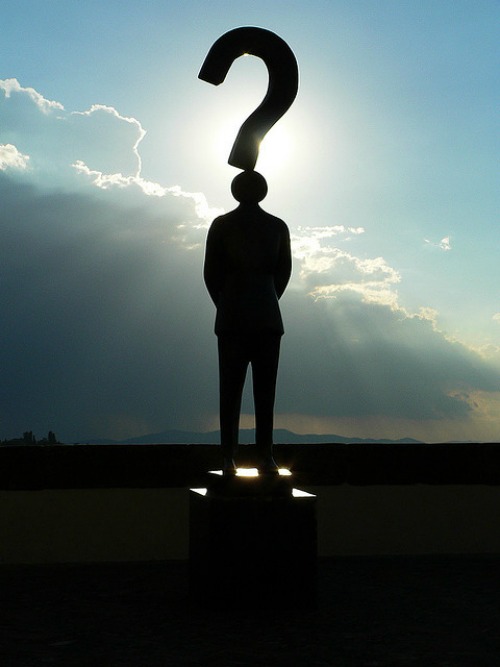
Last week as I was driving my children to school, my son asked me out of the blue “Mom, what do you do all day when we are at school?” My daughter chimed in with,” Yeah…what DO you do all day?” (more…)


Last week as I was driving my children to school, my son asked me out of the blue “Mom, what do you do all day when we are at school?” My daughter chimed in with,” Yeah…what DO you do all day?” (more…)

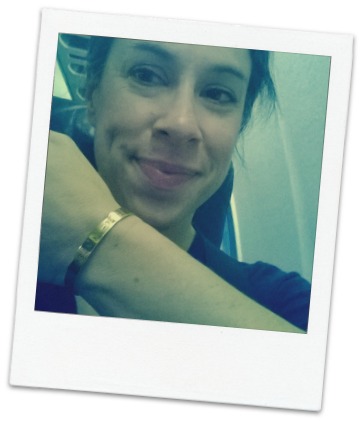 Recently, I had the opportunity to travel to my hometown to attend my high school reunion. I was excited about the trip for several reasons. I rarely travel without my children, and this visit was just for me. I would be able to see my parents, my sisters, and childhood friends with one night out on the town. (more…)
Recently, I had the opportunity to travel to my hometown to attend my high school reunion. I was excited about the trip for several reasons. I rarely travel without my children, and this visit was just for me. I would be able to see my parents, my sisters, and childhood friends with one night out on the town. (more…)

 This month marks our third anniversary of living in Jakarta. Considering how empty our house was when we first arrived here, I am staggered at how much stuff we have acquired in that short time.
This month marks our third anniversary of living in Jakarta. Considering how empty our house was when we first arrived here, I am staggered at how much stuff we have acquired in that short time.
We initially started out with garden chairs as living room furniture and took our time furnishing our new space. Though the house isn’t exactly cluttered, it feels full – and I feel daunted by the sheer volume of STUFF that seems to fill every closet and drawer.
It’s the never-ending tide of cheap party favors, orphaned toy and game parts, and plastic galore. It’s the piles of paper: children’s artwork, old receipts, and unfinished magazines. It’s all the things I never use or wear, the boxed objects I might use one day and the stock of (US-bought) items I think I can’t live without.
Moving from the US to East Timor 5 years ago was a great opportunity to clear things out and scale back. Although I did feel a little sad watching an expectant dad cart away our twins’ disassembled cribs the night before we moved, it felt good to sort through our accumulated belongings and assign categories: donate, sell, ship or store.
Donating unwanted items was easy. I arranged for a pick up with a local charity group, stacked everything on my porch and it was all magically whisked away. We sold our car and other big items, sent friends home with plants and other housewares and shipped our edited possessions to Dili.
Everything else went into our storage unit. A few years later I visited it for the first time and was amazed by what we’d deemed worth keeping at the time. I randomly peeked in a few boxes and found…sweaters. Lots of sweaters. What was I thinking? It was winter at the time and we didn’t know how long we’d be away, but still.
We also stored our furniture, though we recently realized that the cost of storing it for the last five years has probably exceeded its value. While visiting the US, my husband spent a day digging out furniture and giving it all away – couches, tables, lamps, washer/dryer…everything. I was thousands of miles away at the time but it felt fantastic.
Leaving East Timor prompted a similar purge. And yet here I am again, feeling the urgent need to reduce and simplify.
Here in Jakarta, this process isn’t as straightforward. While it’s fair to say that nothing will ever go unused, getting rid of unwanted items isn’t as simple as piling them on the porch. I frequently give outgrown kids’ clothes and shoes to friends or neighbors, donate household items to women’s association charity shops, or leave things out to be upcycled by our handcart-pulling bin man.
Last month my children got involved and we went through their toys, books and clothes and filled 10 bags with donations for a local orphanage. Though it was good for them to be part of this process, I would also really like for them to see where their donations are going and consider giving back in other ways (time, money, materials etc.).
Although I will never be a minimalist (or a light packer…), I’m committed to scaling back and am hopeful that this is a first step toward living with less.
A quick internet search reveals hundreds of creative ways to de-clutter, organize and simplify our homes – and ultimately our lives. We are told that having too much stuff is draining and overwhelming us, that we are wasting too much time and money managing our things and that getting rid of all this stuff can make our lives richer and happier.
All of this may be true, but for me the bigger question is about how to acquire less stuff in the first place.
Clearly I don’t have the answer yet, but it’s definitely something I would like to explore and practice – starting now.
Please share your strategies and tips to get me started!
How do you minimize/manage the “stuff” in your house and life? Do you have any tips for living with less?
This is an original post for World Moms Blog by Shaula Bellour.
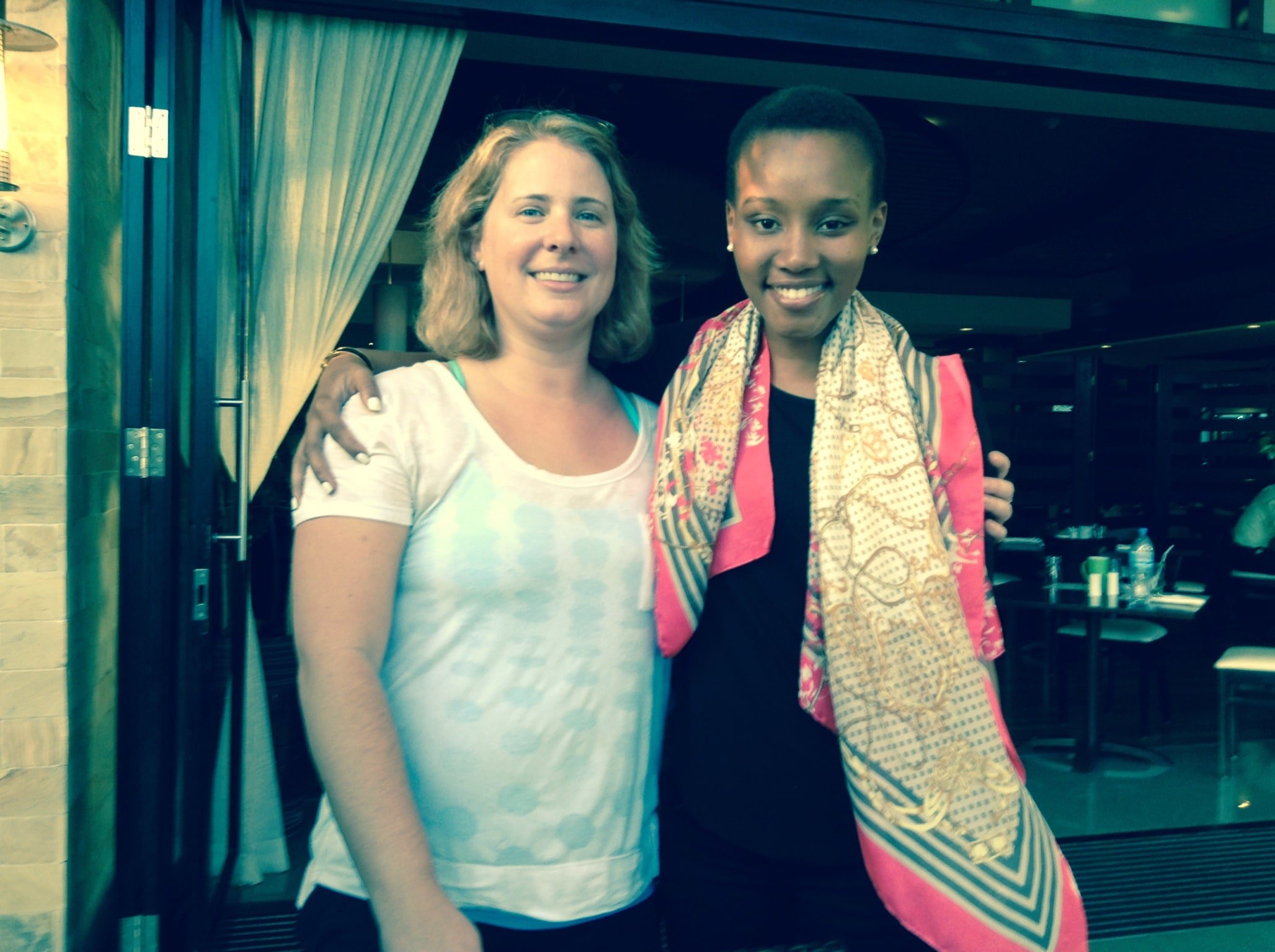
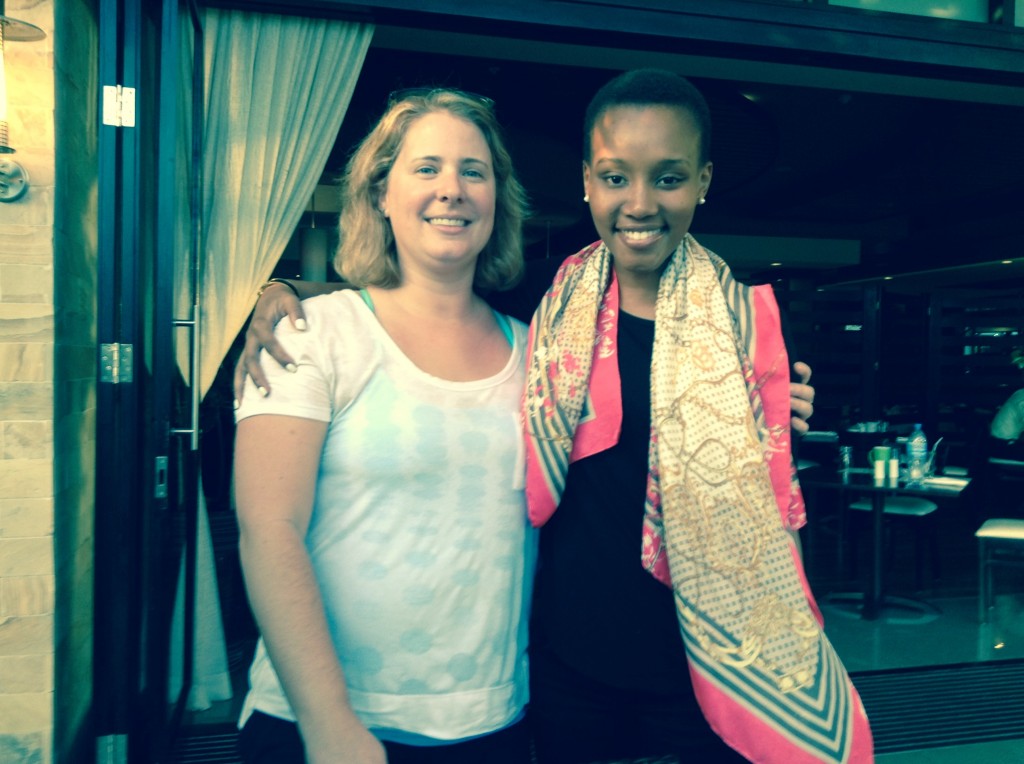
I am by no means an expert on HIV or AIDS. In fact, other than knowing some basic statistics and facts on transmission, I have never really given much thought to the social implications of living with the virus. This wasn’t intentional, but most likely the result of the small bubble in which I was living for most of my life; a bubble that did not include any friends or family directly affected by the virus. That all changed, last November, when I visited Arusha, Tanzania to meet some of the students in the Mom2Mom Africa Organization, a small not for profit that I founded several years before. I knew some of our students came from families in which some members were positive. Some were left orphaned by the disease. But what I didn’t realize was how this impacted these children in terms of treatment by their local community, regardless of their HIV status. I learned of children who were shunned by the church because the deaths of their parents was attributed to AIDS. I learned of other families shunned by their own relatives for the same reason. In some instances, the children were not even aware of why their parents died. It was hidden to protect them.
I left Tanzania with a heavy heart, but it was made heavier by the stories of the struggles of some of our students because of the AIDS pandemic. I had suspected that discrimination existed but I now had little faces associated with that discrimination haunting me, making it more real. Students are accepted into Mom2Mom Africa regardless of HIV status…I can think of operating no other way. In fact, we only request medical information so we can provide the appropriate health care.
I was now beginning to understand that this virus was not only killing people, but leaving behind families to deal with the shameful treatment by society.
Our affected students not only required extra medical attention, but also more emotional support.
I began to wonder if those affected by HIV/AIDS in Canada feel the same degree of isolation. Did being HIV positive in Canada carry with it the same stigma as in Tanzania? I decided to find out. Speaking to the AIDS Committee of Cambridge, Kitchener, Waterloo & Area (ACCKWA), I learned that, unfortunately, Canadians often face the same discrimination and stigma. Although laws are in place to help prevent discrimination, it still occurs. Many of those affected by HIV are judged, and often blamed for their HIV status. Thankfully, there are support groups such as the ACCKWA that provide a safe place and much-needed services to those living with HIV in our local community.
After speaking to ACCKWA, I contacted my friend, and fellow World Moms Blog contributor, Nancy Sumari to discuss what support services are in place for those living with HIV, and their families, in Tanzania. Nancy is part of the “I am Positive” Campaign in Tanzania. The campaign was established in response to reports by those living with HIV of being discriminated against and, in some cases, being physically assaulted and emotionally abused because of their HIV status. The campaign has several main objectives, but the one that hit home the most was:
“To live with HIV/AIDS is NOT to live without human rights and dignity”.
The power of that message is not only incredible, but universal. Regardless of what country you live in, what part of the world you live in, and what your HIV status is, you have the right to basic human rights and to live with dignity. We ALL deserve this.
As I reflect on this past year, and what I have learned about the realities those living with HIV face each and every day, I can’t help but dream of a day when the stigma no longer exists; a day when judgement and discrimination are replaced with support and understanding. Or better yet, I dream of a day when HIV and AIDS move from pandemic status to curable infection. But, until then, I hope that empathy prevails for all those living with HIV, as well as for their families.
This is an original post written by Alison Fraser for World Moms Blog.
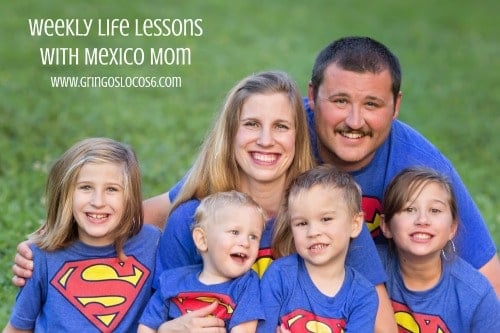
 As a wife of one and a mom of four, it seems like I am always learning and discovering! I know I am not alone. Let’s just admit it: The world is a big place, life is a lesson, and children can be the best teachers. Normally my series, Life Lessons with Mexico Mom, is hosted on Los Gringos Locos, but today I am posting here on World Moms Blog.
As a wife of one and a mom of four, it seems like I am always learning and discovering! I know I am not alone. Let’s just admit it: The world is a big place, life is a lesson, and children can be the best teachers. Normally my series, Life Lessons with Mexico Mom, is hosted on Los Gringos Locos, but today I am posting here on World Moms Blog.
Here are my insights and experiences as a Mexico Mom for this week:
Life Lesson 25: The city of Morelia, Mexico may shut off your water at any time without given notice. If this happens make sure your water tank is full! We have to press a switch to fill our water tank every other day or so. If we forget, we are without water for a few minutes. If the city turns off the water, we may be without water for a day. Then our wonderful landlord brings us a huge barrel of water for the toilets and the dishes. Yea!
Life Lesson 26: Driving through Morelia you could very well see a naked woman in the middle of the street. Unfortunately there is not much government help for the poor and mentally ill in our city. This part is actually very sad. My husband saw this poor lady, stark naked, with a pile of clothes in front of her. Chances are she was homeless and mentally ill. Cars were slowing down and people were staring. Brad was flabbergasted. There is not much he could have done for her. She would probably have been scared of my large, white husband.
Life Lesson 27: It is not necessary to have a stove and oven. Since we moved into our new house a month ago I have been without this appliance. I miss it dearly and hope to purchase one very soon. But on the upside, we have discovered just how much you can cook on a grill. Banana bread, pancakes, casseroles, scrambled eggs, quesadillas, pulled pork, and lots more! Brad has become a professional grill chef. Cooking is not my forte, so I am loving it!
What life lesson did you learn this past week? Please share it with us below. We want to hear your thoughts from around the world!
This is an original post to World Moms Blog by Tina Marie Ernspiker. Tina can be found blogging over at Los Gringos Locos. She is also on Facebook and Twitter.
Photo credit to A. Hurst Photography
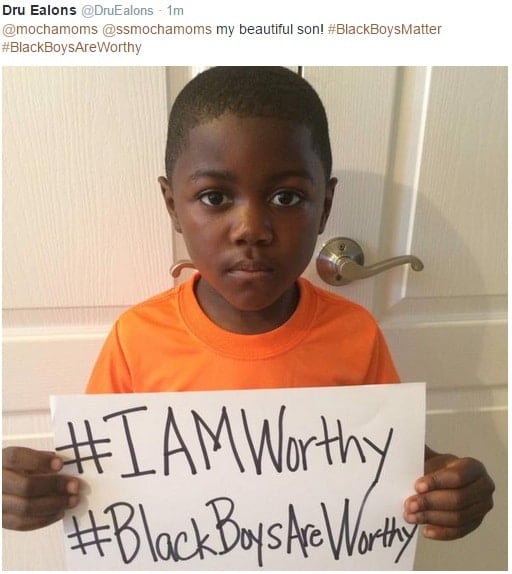

Mocha Moms, Inc. members, many of whom are the mothers of sons, are outraged by the failure to indict Darren Wilson in the Michael Brown, Ferguson grand jury case. But we realize we can’t change the decision, nor bring back Michael Brown, Trayvon Martin and countless other unarmed black boys, and men who have lost their lives. We chose to take to social media and flood our Facebook, Twitter and Instagram pages with positive images of our sons with hashtag #blackboysmatter. This is our way of peacefully organizing via the power of social media to change the way our society views black males. At the time of this article, our social media campaign has garnered nearly 5 million impressions and that number is steadily growing.
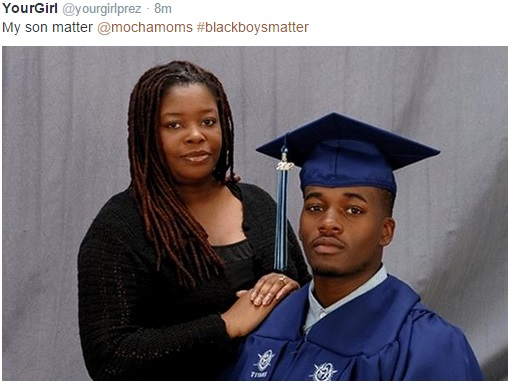
Our sons are not thugs, robbers or murderers. They are educated, professional, philanthropic, law-abiding men who give back to their communities and families. Their precious faces should not evoke a sense of fear simply because they are black.
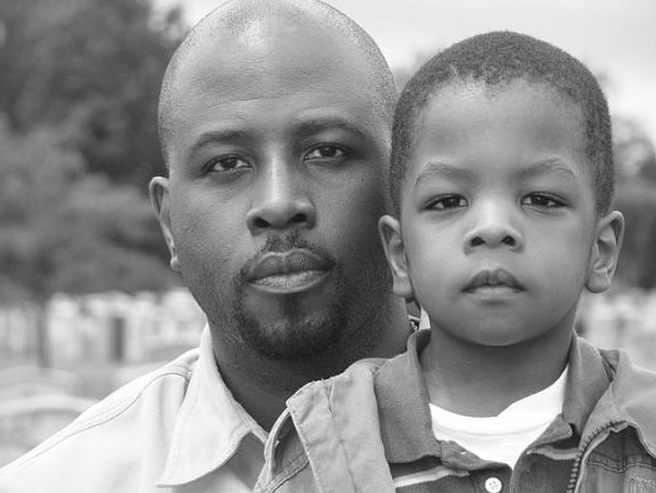
We are not saying that all lives are not precious and equally important, or that our girls, white or brown children don’t matter. But these children are not being gunned down like animals in the street.

We invite moms from around the world, no matter the race, to join us in solidarity and help us spread the word by sharing photos of your precious sons of any color with #blackboysmatter. But don’t stop there!
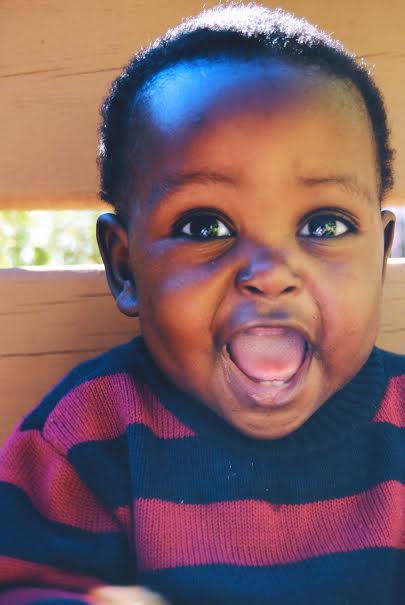
Talk to your children about equality. Share the struggles of people who are not treated fairly and are discriminated against. Raise them to understand that no matter the color of someone’s skin, they deserve the same rights as everyone.
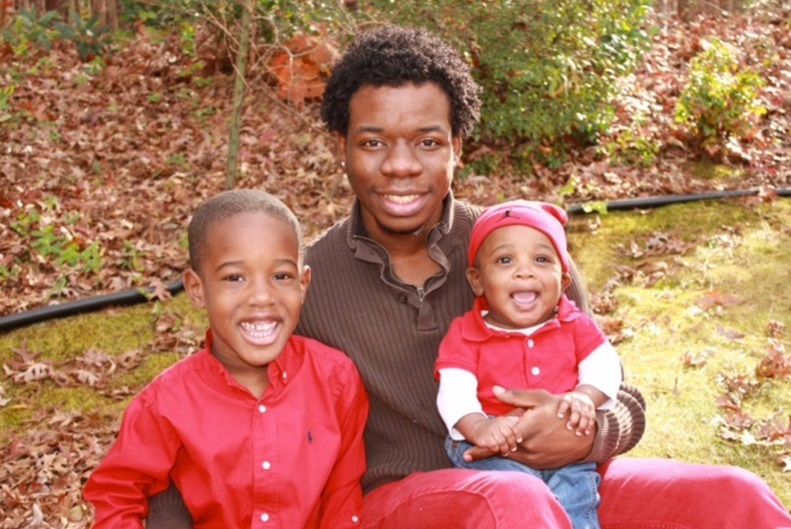
We shudder to think that civil rights icon and scholar, W.E.B. DuBois, was accurate in his statement;
“A system cannot fail those it was never meant to protect.”
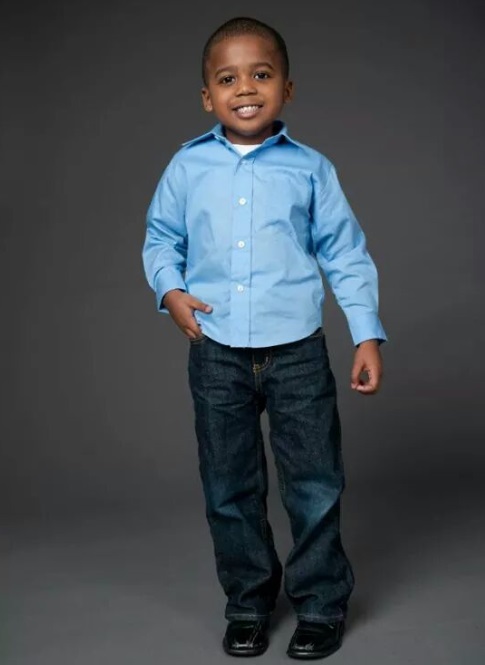
This is an original post written by LaShaun Martin, National Director of Social Media, Mocha Moms, Inc. for World Moms Blog.